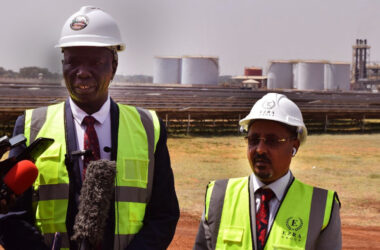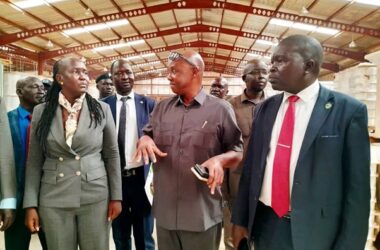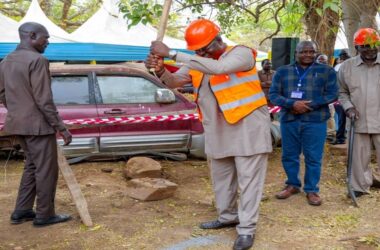By William Madouk Garang
A new trafficking in persons Report shows that the government of South Sudan does not fully meet minimum standards for elimination of “trafficking in persons” and is not making significant efforts to do so.
The report published on Tuesday 19th of July, 2022, by US Department of state has maintained the country’s position in the Tier 3 category with other countries.
Those in Tier 3 include; Russia, Syria, Turkmenistan, Venezuela, Vietnam, Afghanistan and Belarus among other countries.
Tier 3 categories are considered to have failed to comply with minimum standards for the elimination of trafficking or making significant efforts to bring itself into compliance with such standards.
“Despite the lack of significant efforts, the government took some steps to address trafficking, including convening its anti-trafficking inter-ministerial task force, finalizing the 2021-2023 National Action Plan (NAP) to Combat Trafficking, and conducting awareness activities” the report partly read.
“However, during the reporting period, there was a government policy or pattern of employing and recruiting child soldiers” it added.
The Report also stated that the government has failed to hold responsible security and law enforcement agent officers at National Police Service (SSNPS), South Sudan People’s Defense Forces (SSPDF) who are forcefully recruiting children.
The US department of State further cited that authorities did not report investigating or prosecuting any forced labour or sex trafficking crimes for the 10th consecutive years.
“The government did not report identifying or assisting any victims and continued to penalize victims for unlawful acts their traffickers compelled them to commit,” the US Department noted.
The report recommended that all unlawful recruitment and use of children by government forces and associated militias should cease and to immediately demobilize all child soldiers under the command or influence of government forces and affiliated militias.
“Vigorously investigate and prosecute suspected traffickers, including complicit government officials. Train law enforcement and social workers to identify trafficking victims, particularly among vulnerable groups such as children, individuals in commercial sex, internally displaced persons” the report suggested.
The US Department of State in its report urged the government to release funds to support military’s directorate of child protection to enable them facilitate efforts to identify culprits of child soldiering and refer cases to civilian courts.
“Draft, finalize, and implement victim identification screening and referral procedures in partnership with international organizations and civil society” it added.
The report also advised for the amendment of the 2008 Penal Code or the passing of a comprehensive anti-trafficking law to criminalize adult sex trafficking and prescribe penalties that are sufficiently stringent and commensurate with other grave crimes, such as rape.
The US Department of State stressed that government did not report providing services to any victims of trafficking, social stigma and fear of punitive law enforcement actions continued to discourage the survivors.
The report stated that for five years now human traffickers exploit both domestic and foreign victims in the countries as well as they exploit victims from South Sudan aboard especially women and girls in rural areas.
It added that those women and girls in rural areas or internally displaced are vulnerable to domestic servitude in the Country, while male occupants of those household abuse, and exploit for commercial sex.
“Prominent South Sudanese individuals in state capitals and rural areas sometimes force women and girls into domestic servitude. South Sudanese and foreign businesspeople exploit South Sudanese girls in sex trafficking in restaurants, hotels, and brothels in urban centers—at times with the involvement of corrupt law enforcement officials,” the report revealed.
The report further called on government to increase law enforcement efforts citing Article 177 of the criminal code which criminalized sex trafficking and labor trafficking with penalty of eight years. “Which were sufficiently stringent and, with respect to sex trafficking, commensurate with those for other serious crimes, such as kidnapping,” it further noted.
The report evaluates 188 countries and assign, each to one of the four categories based on the countries efforts to combat trafficking.
Tier 1 is the best ranking, while Tier 3 is the worst. There are two middle ranks; Tier 2 and Tier 2 watch list.
Countries placed in Tier 3 can be penalized with Sanctions and limited access to the United States and international foreign assistance.



